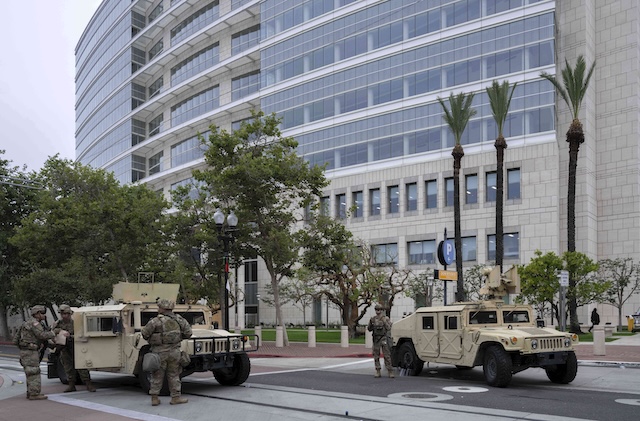Editorial: Immigration law 101 from Oregon’s chief justice
Published 9:39 am Friday, July 4, 2025

- The California National Guard arrives to stand watch outside the Ronald Reagan Federal Building and Courthouse in California in June (Mindy Schauer /The Orange County Register via AP)
If you want a good lesson in the law about immigration, read the recent order from Oregon Chief Justice Meagan Flynn.
It’s about immigration enforcement in the Oregon courts. Oregon became the first state to become a sanctuary state in 1987. The new law prohibited state and local law enforcement and state and local governments from aiding in immigration enforcement from the federal government. The law was later strengthened.
Civil arrests in or around court facilities are prohibited without a warrant or judicial order. Public facilities and their personnel are prohibited from “investigating, detecting, apprehending, arresting, detaining or holding individuals for immigration enforcement.” They also can’t assist a federal agency in immigration enforcement, except as required by state or federal law.
“The Tenth Amendment to the United States Constitution reserves to the States the power to determine the extent to which a state will expend state resources in service of the activities of the federal government, including immigration enforcement activities,” Flynn writes, citing case law.
New federal guidance issued in May said U.S. Immigrations and Customs Enforcement did intend to engage in enforcement activity around courthouses. Flynn’s order directed a change that basically means if immigration enforcement shows up at an Oregon courthouse a judge must be the point of contact for any request.
As you might assume, reports of communications or requests for information from federal authorities to Oregon law enforcement and governments went up dramatically from June 1, 2024, to May 31, compared to the same period the year before. Incidents went up 265%, according to a new report from Oregon’s Criminal Justice Commission
As Flynn wrote, “the fear of immigration enforcement activity in state court facilities deters participation in judicial proceedings by parties, jurors, victims, witnesses, and other community members who are seeking to enforce their legal rights, including those who are lawfully present in the United States; and civil immigration arrests in public court facilities can disrupt court proceedings and create a traumatizing environment for court users and court staff. Such activity, as a result, impairs the fair and orderly administration of justice.”
The courthouse has become, at once, a place of justice and fear.
You can read the judge’s order here: tinyurl.com/Flynnorder.








